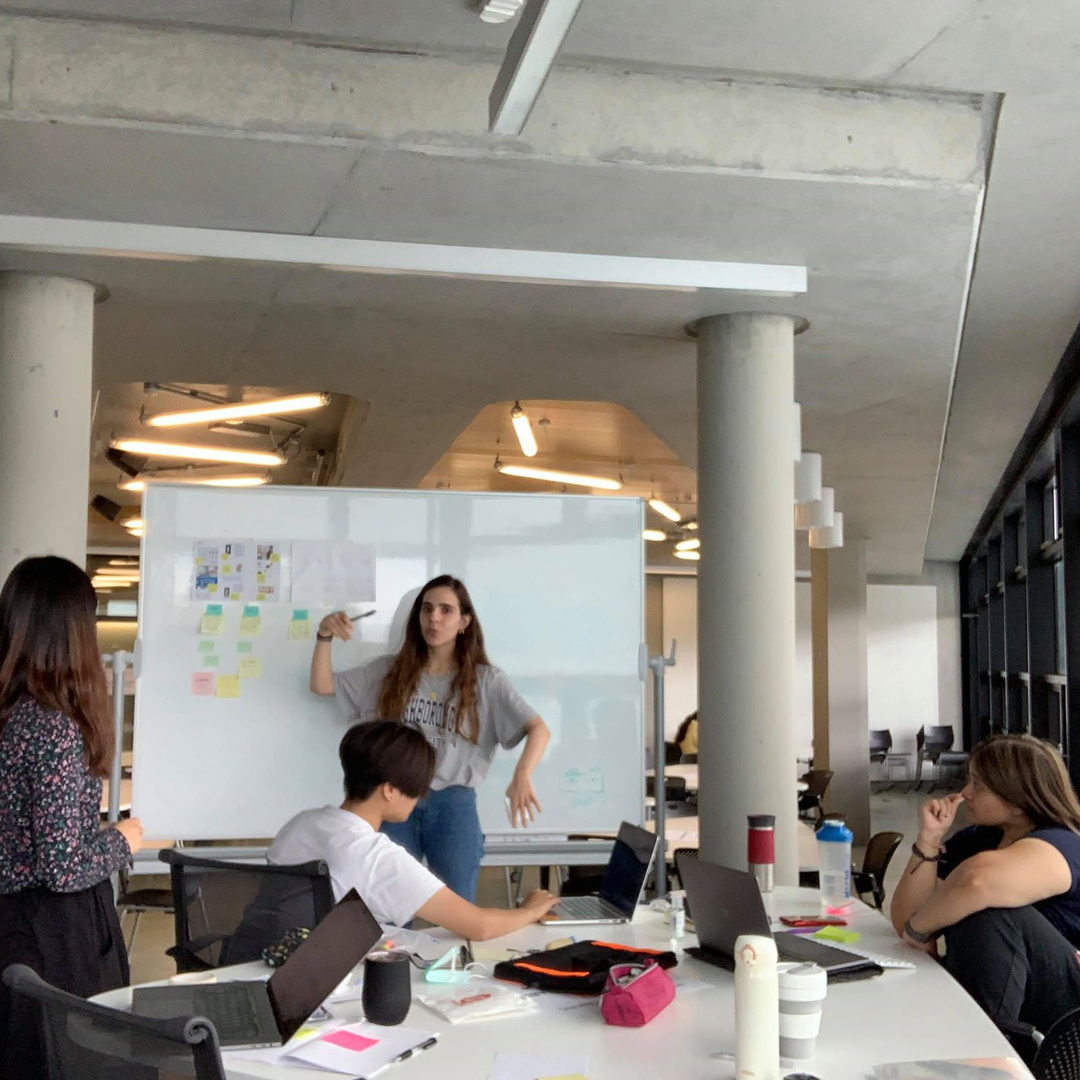Major Project
Balancing the Digital Well-being of Loughborough University Students [Read more]

“Waves” provides daily plans/ digital diets to users who are struggling to manage their digital life. The community aspect and the challenges help the users to stay motivated without the fear of missing out.
“Waves” is a mobile app that provides personalised “digital diets” that users can adjust based on their needs. Users can join the app with their friends so they can support and motivate each other as well as taking part in “digital fasting” challenges.

The challenge & project aim
The number of people that become addicted to the internet and their desire to check their digital devices has significantly increased. As a result, the more they are connected online, the more they disconnect from real life.
This project aims to investigate the way young university students interact with their digital devices to find opportunities to improve their digital well-being in the long term and usage of their digital devices in a more intentional and meaningful way.

User research
To better understand the students relationship with digital devices, qualitative research was conducted. During this stage, several methods were used, including:
- Semi-structured interviews with activities such as Sensitising Tool and Timeline
- Auto-ethnography in a diary form

Key insights
The collected data from user research was analysed using affinity mapping.
Summary of key insights:
“Young full-time university students want to change some of their digital habits because they want to involve in some off-screen activities. Still, they lack motivation and self-discipline over their devices as they afraid of missing out.”

Design iteration
The findings of the design research guided the design development of Waves.
Initially, the key insights were reframed as opportunities using How Might We (HMW) questions. Then I used tools such as crazy 8s and mood boards to push myself to think of creative solutions that could address the user needs.
Following that, I came up with four different concept ideas. To choose the most appropriate one, I held a co-creation session with target users. From the user feedback, the final concept was developed.

Experience Design Principles
- Motivating: guiding people to achieve their goals
- Informing: giving feedback about user performance
- Effortless: minimum effort from the user
- Responsive: to users’ needs

User journey & initial wireframes
Three main user journeys were created to demonstrate the main features of the app -
1) Set up your data
2) Select your diet
3) Encourage your friends
Then a set of low-fidelity prototypes were made to consider the main user journeys. This was then tested with users.

Final design
“Waves” provides daily plans/digital diets to users who are struggling to manage their digital life. The community aspect and the challenges help the users to stay motivated without the fear of missing out.
Charikleia Savva
I am interested in applying my “creative thinking” and exploring the possibilities that Artificial Intelligence (AI) can provide to solve user needs.
My name is Charikleia Savva, I am a graphic designer with a keen interest in digital design. I graduated in 2018 from the Cyprus University of Technology (CUT), with a Bachelor’s Degree in Multimedia and Graphic Arts. My passion for design leads me to expand my knowledge in User Experience Design so that I can empathise with users and create solutions that enhance their life.
Major Project
Balancing the Digital Well-being of Loughborough University Students
Awards
At UXathon19 at Loughborough University, my team and I received the ‘Best Prototype Award’ by HKU MBA for our proposed solution for our client in Hong Kong. During the one-day design sprint, I learnt the importance of collaboration to produce successful results under limited time.
One of three winners of Ford Motor Company Fund Smart Mobility Challenge 2019-2020. Our team proposed a user-to-user service that delivers and stores travellers’ bags safely so they can have a hands-free journey, enhancing their mobility and use of public transport. During this challenge, I had the opportunity to expand my knowledge in service design as well as collaborate face to face and remote with fellow designers.